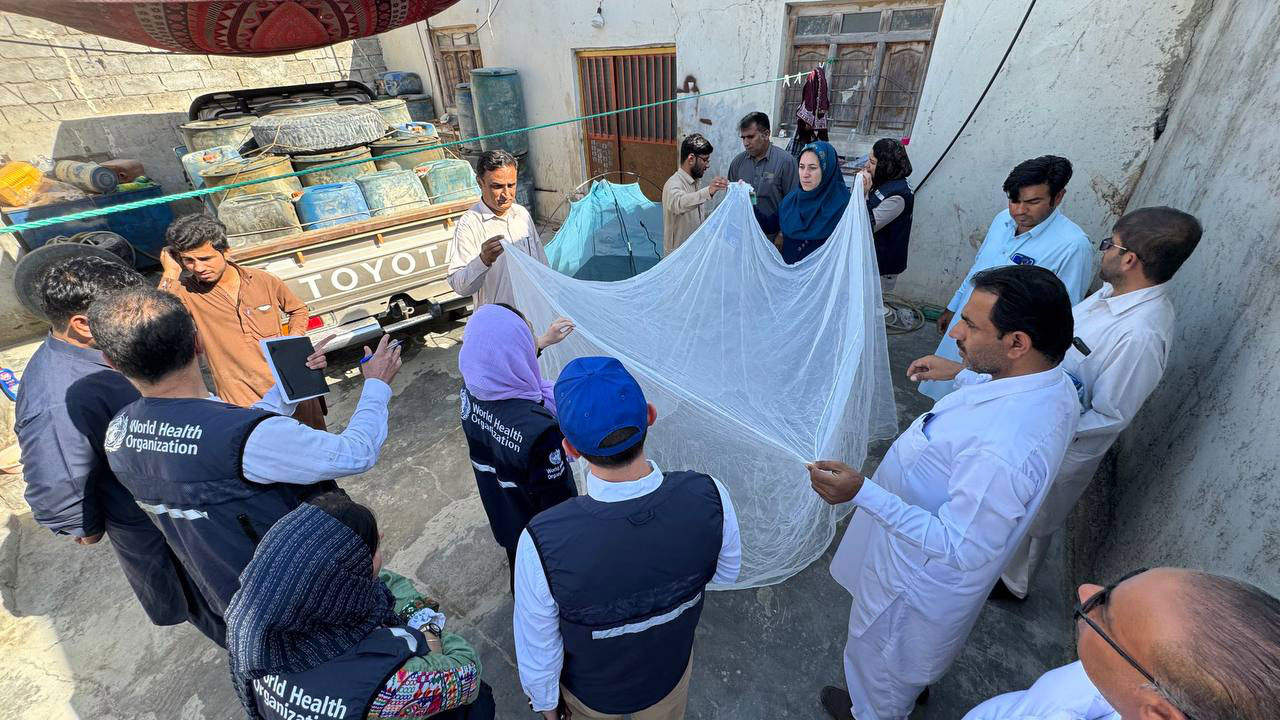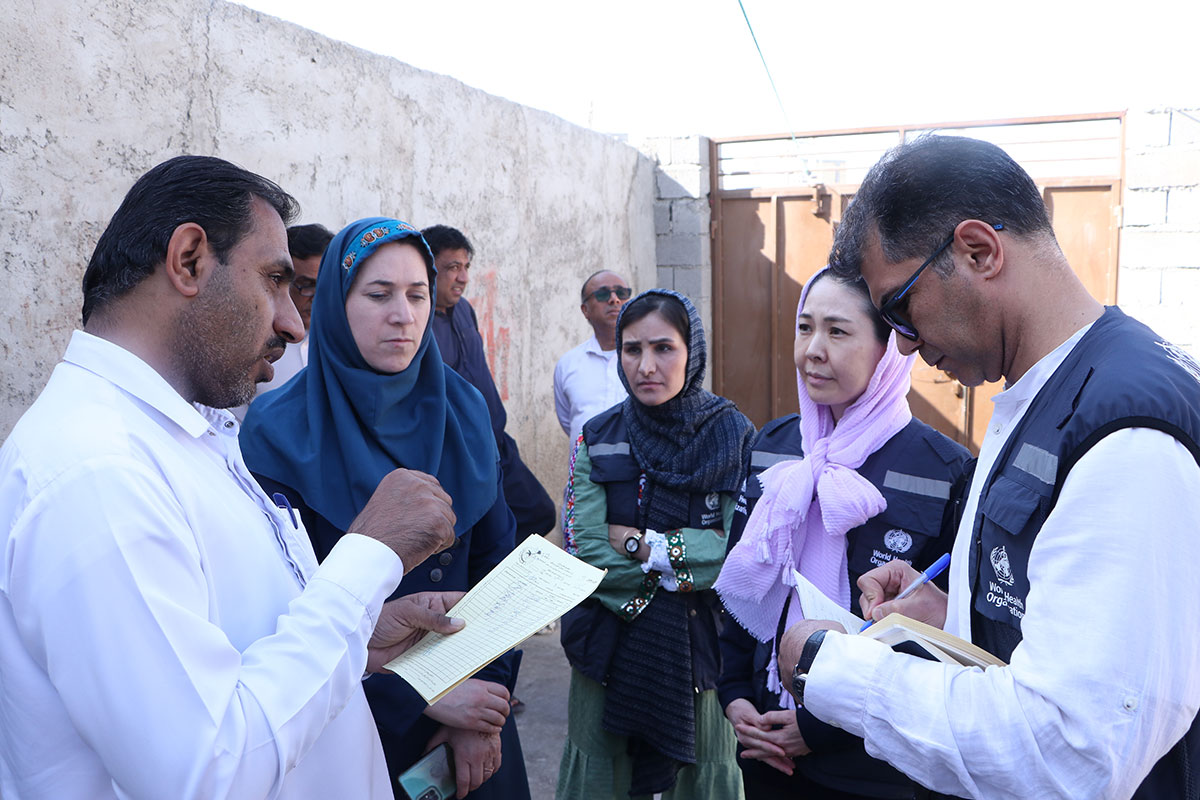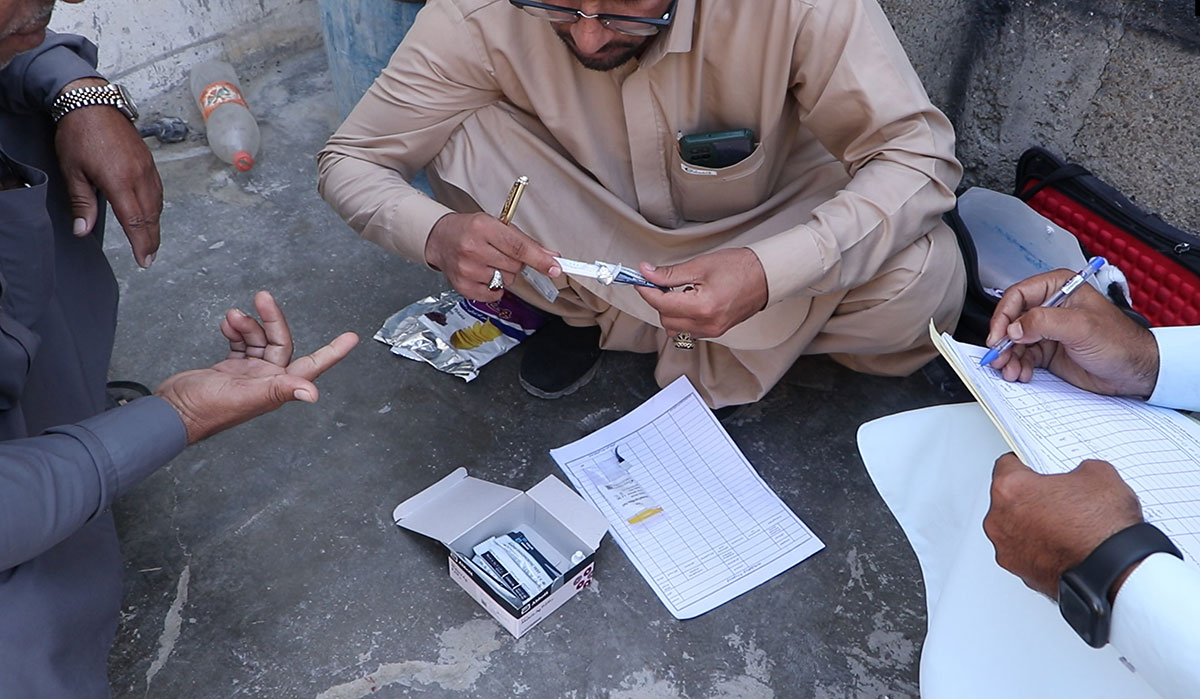 15 January 2025, Chabahar, Islamic Republic of Iran – A race against time is underway in southeastern Iran, where the resurgence of malaria threatens to undo years of progress. The World Health Organization (WHO), with crucial support from the Government of Japan, is on the ground in Sistan and Baluchestan Province, battling this public health emergency and working to protect vulnerable communities.
15 January 2025, Chabahar, Islamic Republic of Iran – A race against time is underway in southeastern Iran, where the resurgence of malaria threatens to undo years of progress. The World Health Organization (WHO), with crucial support from the Government of Japan, is on the ground in Sistan and Baluchestan Province, battling this public health emergency and working to protect vulnerable communities.
In 2018 and 2019, the Islamic Republic of Iran appeared to have won the battle against locally transmitted malaria. The victory proved fragile: in 2022, the province experienced a staggering 5-fold increase in malaria cases compared to the previous year.
The dramatic rise in cases has been attributed to the devastating floods in neighbouring Pakistan in September 2022 which led to an expansion of malaria breeding sites. The porous border with Pakistan – infected individuals and mosquitos can easily cross back and forth – poses a significant challenge, as do poverty, limited access to clean water and sanitation and inadequate housing which create ideal conditions for malaria transmission.
"We have very little understanding of malaria," says Fatemeh, a mother of 5 living in a vulnerable area of Chabahar.
 "If we can be provided with information and resources, we will share them with our families and relatives who live in the neighbourhood so we can protect our children."
"If we can be provided with information and resources, we will share them with our families and relatives who live in the neighbourhood so we can protect our children."
Recognizing the urgent need for action, the Government of Japan stepped forward with a donation to support WHO's efforts. The generous contribution provided 4902 mosquito dome tents, offering families like Fatemeh's protection from infected mosquitos, 50 000 malaria rapid diagnostic tests (RDTs), enabling health care workers to quickly identify and treat infected individuals, and 1655 kg of insecticides, deployed to contain mosquito populations at their source. The combined resources are estimated to benefit 77 400 people in the province.
In December 2024, the WHO mission observed the proactive approach to malaria control demonstrated by local health workers as they conducted house-to-house screenings, distributed mosquito nets and educated communities on how to use them.
"Active case finding that complements passive surveillance is essential in selected communities in Chabahar, where access to health care can be extremely limited," said WHO Deputy Representative and Health Emergencies Lead in the Islamic Republic of Iran Dr Mikiko Senga.
"By identifying both symptomatic and asymptomatic cases, we can effectively break the cycle of transmission and support efforts towards malaria elimination, particularly in communities with low health literacy which is often associated with low health care seeking behaviour."
The mission provided valuable insights into Chabahar's health care infrastructure, highlighting capacities and gaps. Social determinants of health were identified as key factors influencing the spread of malaria, underscoring the need for targeted interventions.
 The partnership with the Government of Japan serves as an example of how international cooperation in responding to public health emergencies helps protect vulnerable populations.
The partnership with the Government of Japan serves as an example of how international cooperation in responding to public health emergencies helps protect vulnerable populations.
The fight against malaria in Chabahar, as well as in the rest of Sistan and Baluchestan Province, continues. With the combined efforts of WHO, the Government of Japan and local health authorities, there is hope that this outbreak can be contained and that families like Fatemeh's will be better equipped to protect their loved ones.


